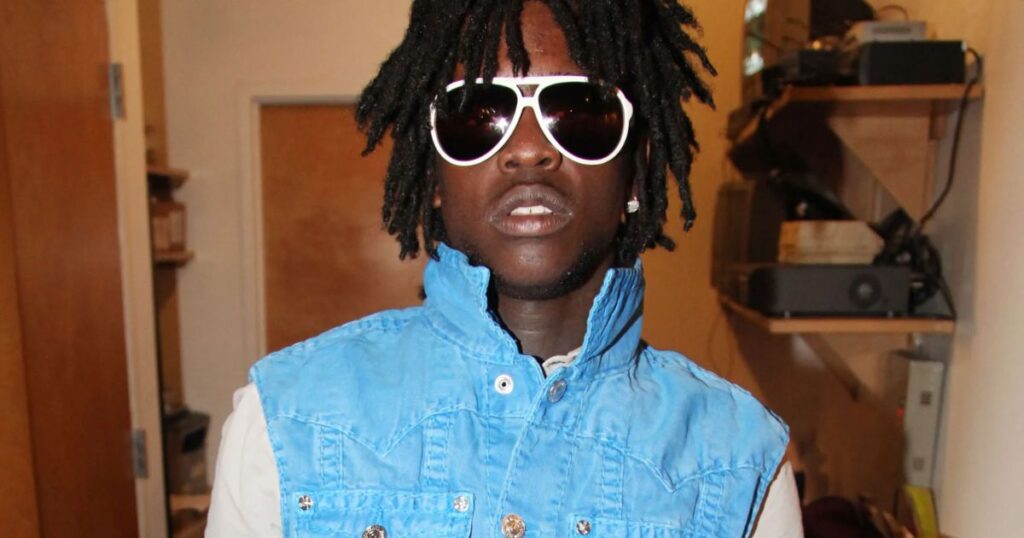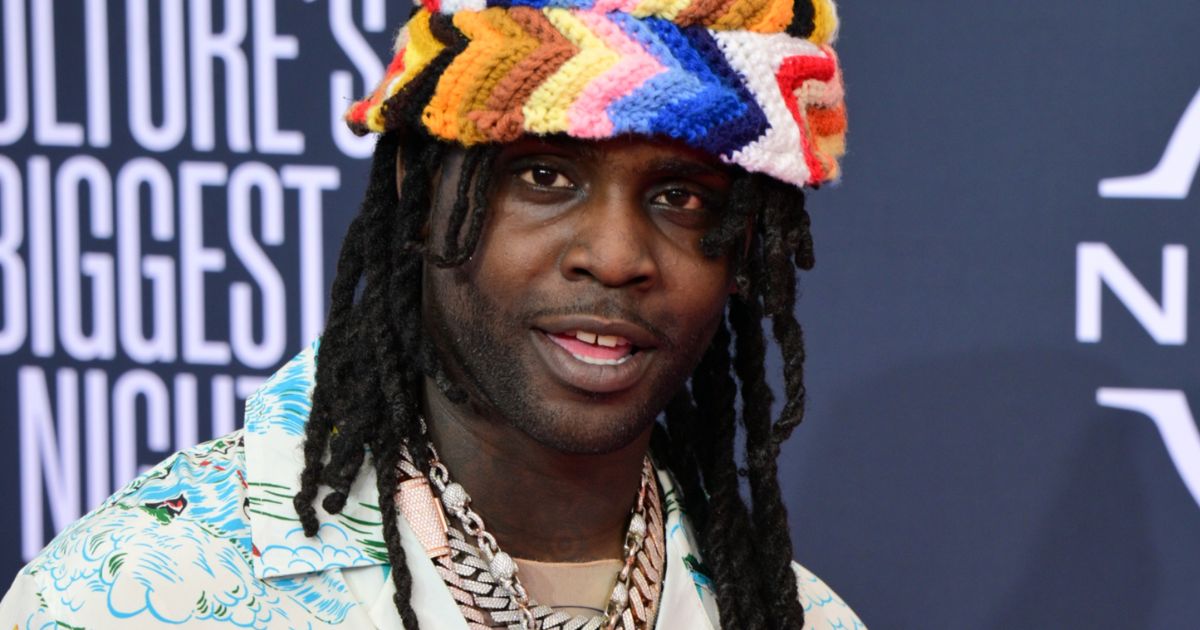When people ask, “How much is Chief Keef worth?”, the answer isn’t as simple as a single number. Net worth changes year by year, shaped by contracts, royalties, legal issues, and lifestyle choices. For Keith Farrelle Cozart, better known as Chief Keef, his journey from O-Block in Chicago to global rap influence tells a story that’s as much about business as it is about music.
By 2025, estimates place Chief Keef net worth 2025 at around $4 million. This figure reflects his music royalties, past contracts like the Interscope Records contract, independent label work with Glo Gang and the 43B label, as well as setbacks like legal fees, child support payments, and eviction and rent arrears.
This article will take a close look at his finances, tracing every milestone that shaped his wealth — from the Finally Rich album to his independent grind, from drill music’s birth to real estate troubles.
What is Chief Keef’s Net Worth?
The short answer: Chief Keef net worth 2025 is $4 million (estimated).
Here’s a snapshot of his assets and liabilities:
| Category | Details |
| Music royalties | Revenue from streaming, publishing, and catalog |
| Advances and recoupment | Millions in reported label advances, including $440,000, $300,000, $180,000, and $200,000 payments |
| Touring income | Concerts and live shows, reduced during legal troubles |
| Production credits | Beat-making, collaborations, and songwriting royalties |
| Label ownership | Glo Gang, Glory Boyz Entertainment, and later 43B |
| Real estate | Rentals in Highland Park, Los Angeles, often tied to eviction and rent arrears |
| Liabilities | Child support payments, lawsuits, and legal fees |
How much is Chief Keef worth? It depends on timing. His peak during the Interscope Records (ORG) era was higher due to advances, while independent years brought steadier but smaller income from streaming revenue and merch.
Interscope Deal
The Interscope Records contract was a turning point. Signed as a teenager in 2012, Chief Keef (PERSON) reportedly secured millions in advances:
- $440,000 advance for his debut
- $300,000 for his Glory Boyz Entertainment (ORG) label
- $180,000 toward recording
- $200,000 for his debut project’s promotion
That totals nearly $6 million in potential funding.
However, like many young artists, Keef faced advances and recoupment. Labels give large sums upfront but deduct recording, marketing, and travel costs before the artist sees real profits. When sales don’t hit thresholds — in Keef’s case 250,000 album sales numbers — contracts can be cut short.
The Finally Rich album sold about 150,000 copies, below the mark. Still, it produced iconic singles like I Don’t Like (WORK — song) and Love Sosa (WORK — song), which later boosted his catalog value.
Case study:
Many rappers with early major-label deals, like Keef, face the same challenge: cash upfront but limited long-term control. After leaving Interscope Records (ORG), his independence meant smaller checks but ownership of more music.
Legal Issues

No discussion of Chief Keef net worth is complete without his run-ins with the law.
Key legal and financial challenges:
- Multiple arrests in Chicago (LOC) and later states
- Child support payments across several cases
- Legal fees that piled up from attorneys and settlements
- Missed concerts and touring income due to restrictions
One notable case involved Ramsay Tha Great (PERSON), a producer who accused Keef of assault. These high-profile cases drained finances and tarnished opportunities.
FAQ note: Did legal issues lower Chief Keef’s net worth?
Yes — between fines, missed shows, and ongoing obligations, they significantly cut into his earnings.
Real Estate
In the early 2010s, Keef rented a mansion in Highland Park, Los Angeles (LOC). Reports show repeated eviction and rent arrears, sometimes totaling tens of thousands of dollars.
Unlike rappers who invest heavily in property portfolios, Keef never built long-term wealth through real estate. Instead, housing became more of a liability than an asset.
Read More… Casey Anthony Net Worth
Table: Reported housing challenges
| Year | Issue | Impact on net worth |
| 2014 | Highland Park eviction | Lost security deposit + reputation hit |
| 2016 | Missed rent payments | Lawsuits, media coverage |
| 2018+ | Continued rentals | No significant ownership reported |
Early Life
Born August 15, 1995, in Englewood (LOC), Keith Farrelle Cozart (PERSON — legal name) grew up in tough conditions on O-Block (LOC), one of Chicago rap’s most notorious neighborhoods.
From a young age, he recorded with makeshift equipment, uploading tracks to YouTube. His raw energy connected with fans and helped create the foundation of drill music.
This background shaped not only his sound but also his approach to money. With limited early guidance, sudden wealth from record deals created both opportunity and risk.
Career
Early Breakthrough
Keef’s rise started with I Don’t Like (WORK — song), which went viral and later got remixed by Kanye West (PERSON) featuring Jadakiss (PERSON), Big Sean (PERSON), and Pusha T (PERSON). That cosign introduced him to a global audience.
The Finally Rich album (WORK — album) followed, powered by hits like Love Sosa (WORK — song). Despite selling fewer than 250,000 copies, the cultural impact was massive.
Independent Era
After leaving Interscope Records (ORG), Keef turned to mixtapes and albums like Bang 3 (WORK — album/mixtape) and Thot Breaker (WORK — album). While not mainstream chart-toppers, they kept his fanbase loyal.
He also leaned into Auto-Tune / trap beats and became a pioneer of the mumble rap influence movement, inspiring younger artists like Lil Uzi Vert and Playboi Carti.
Business Moves
Keef founded Glo Gang (ORG) after Glory Boyz Entertainment (ORG) dissolved. Later, he partnered with RBC Records (ORG) / BMG Rights Management (ORG) and co-launched the 43B (ORG / label).
These moves gave him ownership over releases and a steady stream of streaming revenue, songwriting royalties, and production credits.
Income Breakdown
| Income Source | Details |
| Streaming revenue | Millions of monthly Spotify/Apple streams across catalog |
| Touring income | Strong when active, but inconsistent due to legal setbacks |
| Production credits | Beats sold to other artists, including peers in the drill scene |
| Songwriting royalties | Ongoing royalties from hits like I Don’t Like and Love Sosa |
| Merchandise | Glo Gang apparel and online sales |
| Label partnerships | Deals with RBC Records / BMG partnership and 43B label |
Timeline of Chief Keef’s Net Worth
| Year | Event | Impact on Net Worth |
| 2012 | Viral success with I Don’t Like | First label offers |
| 2012–13 | Interscope Records contract signed | Millions in advances ($440,000, $300,000, $180,000, $200,000) |
| 2014 | Dropped from label | Loss of mainstream support |
| 2015–16 | Independent releases, legal issues | Decline due to legal fees |
| 2017–18 | Thot Breaker + steady streams | Stabilization |
| 2020+ | RBC Records / BMG partnership | Improved royalties |
| 2022 | Launch of 43B label | Ownership-driven growth |
| 2025 | Current | Estimated $4 million |
Chief Keef’s Influence and Legacy
Beyond numbers, Keef shaped the entire genre of drill music and left a lasting mark on Chicago rap. His use of Auto-Tune / trap beats and laid-back delivery sparked the mumble rap influence that shaped hip-hop in the 2010s and 2020s.
Comparison to Peers
| Artist | Estimated Net Worth |
| Chief Keef | $4 million |
| Lil Durk | $8 million |
| Lil Yachty | $10 million |
| Playboi Carti | $9 million |
This shows that while Keef isn’t the wealthiest, his influence outweighs his fortune.
FAQs
What is Chief Keef’s net worth today?
As of 2025, Chief Keef net worth 2025 is about $4 million, combining royalties, shows, and label deals.
How much did Chief Keef get from Interscope?
He received reported advances totaling nearly $6 million, including payments of $440,000, $300,000, $180,000, and $200,000.
Does Chief Keef own his masters?
Not all — but through Glo Gang and 43B, he owns more of his later works.
Did legal issues affect his net worth?
Yes. Legal fees, lawsuits, and child support payments drained millions over the years.
Does Chief Keef own real estate?
Reports suggest he mostly rents. His history includes eviction and rent arrears in Highland Park, Los Angeles.
Conclusion
The story of Chief Keef (PERSON) isn’t just about money — it’s about survival, influence, and independence. From O-Block in Chicago to global fame, his journey shows both the upside and pitfalls of sudden success.
Chief Keef net worth 2025 may stand at around $4 million, but his legacy in shaping drill music, inspiring peers, and paving the way for independent artists is priceless.
